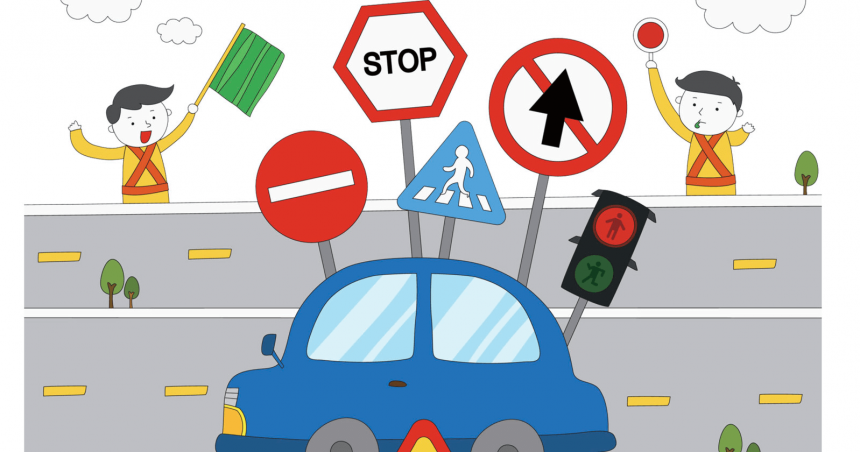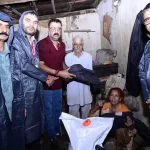Srinagar, June 09: Despite efforts by traffic authorities to curb violations, rash driving continues to plague the streets of Srinagar, posing a growing risk to public safety. Residents and commuters from both uptown and downtown areas are expressing growing concern over the increasing fre-quency of reckless driving, which remains unchecked, endangering lives dai-ly.
Locals from areas such as Parraypora, Baghat, Nowgam, Bemina, Nowhat-ta, Rajbagh, Downtown, Hazratbal, and Eidgah say rash driving has become a common sight. The situation is particularly concerning on key roads like MA Road, Residency Road, and various bypass stretches, where reckless drivers often engage in dangerous maneuvers and disregard traffic signals, creating an unsafe environment for both pedestrians and other road users.
“The roads are already bad, and when you add reckless drivers to the mix, it’s a perfect recipe for disaster,” said Mushtaq Ahmad, a resident of Now-gam. “The authorities need to do more than just occasional checks. We need a permanent solution. It’s high time they start taking action against these drivers.”
Naveed Qadri, a commuter from Hazratbal, echoed this concern, “It’s frus-trating to see people driving as if the roads belong to them. There are so many close calls every day. I don’t know how many times I’ve had to jump out of the way or slam on the brakes because someone decided to overtake me at the wrong moment.”
The issue is not just limited to private vehicles. E-rickshaws, which were in-troduced as an affordable and eco-friendly transport option, are now in-creasingly seen as part of the problem. Many residents report reckless be-havior among e-rickshaw drivers, including over-speeding and erratic ma-neuvering. Alarmingly, a significant number of these vehicles are allegedly operated by minors.
“I stay alert when I see e-rickshaws on the road,” said Faisal Bhat, a com-muter. “They risk not just their lives but also ours. These accidents are un-necessary and preventable. Previously, auto-rickshaws were our main con-cern, but now e-rickshaws are worse.”
Adeeb Wani, a resident of Baghat, added, “I’ve seen teenagers driving e-rickshaws with loud music blasting. They’re zigzagging through traffic without a care. It’s no surprise that accidents are happening. Who is even checking their licenses?”
Adding to the concern is the apparent lack of enforcement. “The lack of proper enforcement is a major issue,” said Junaid Lone from Rajbagh. “You can see traffic violations happening right in front of the police, but nothing is done. These drivers should be penalized heavily to prevent accidents, but unfortunately, that’s not happening.”
Interestingly, many residents had pinned their hopes on the Intelligent Traf-fic Management System (ITMS), which was introduced with much fanfare to automate surveillance and enforce traffic rules more effectively. However, locals are disappointed, saying the system has had minimal impact on the ground.
“When ITMS was introduced, we thought things would change. But drivers still flout rules, and there’s little follow-up,” said Arshid Khan, a commuter in Karan Nagar. “The system is there, but the impact on the ground is min-imal.”
It is important to note that under Section 184 of the Motor Vehicles Act, 1988, rash or dangerous driving is a punishable offense. Drivers who en-gage in such behavior can face imprisonment for up to one year, a fine of up to Rs 5,000, or both for the first offense. Repeat offenders within three years may face harsher penalties, including imprisonment for up to two years and fines up to Rs 10,000.
Despite these provisions, residents feel that lenient enforcement and weak follow-through have allowed reckless driving to continue unchecked. “The fines and penalties are not enough to deter these drivers,” said Owais Shah, a resident of Bemina. “What we need is stricter enforcement and more regu-lar checks to hold these drivers accountable.”
Owais recalled how effective policing in the past had brought noticeable changes. “Earlier, when the traffic police conducted regular drives, you could really see the difference. The roads were more disciplined, and viola-tions had visibly decreased. But now, the situation has deteriorated again.”
Other residents echoed similar concerns, noting that the absence of con-sistent monitoring has emboldened violators. “When people know they won’t be stopped or fined, they keep pushing boundaries,” said Mohammad Imran, another commuter. “It sends a message that there are no real conse-quences.”
Rising Kashmir tried to reach SSP Traffic City Srinagar Ajaz Ahmad for comment but was unable to get a response. However, a senior official from the Traffic Police Department, requesting anonymity, acknowledged the on-going challenges. “We are fully aware of the issue and have been receiving consistent feedback from the public. Enforcement drives are being intensi-fied across the city, especially on the most affected routes,” the official said, emphasizing the importance of public cooperation in achieving lasting change.
The official also addressed the growing criticism of the ITMS. “While ITMS has proven useful in capturing violations and generating e-challans, we’ve observed that many drivers deliberately commit offenses in areas where there are no surveillance cameras,” the official said. “This attempt to bypass the system undermines its effectiveness. We are now deploying additional personnel to monitor these blind spots and assessing locations for expand-ing camera coverage.”
On the issue of e-rickshaws, the official said, “Special teams are being mobi-lized to verify documents and take strict action against violators. We urge the public to report such instances and call upon the RTO Kashmir to en-hance oversight of e-rickshaw operations to ensure they meet safety and li-censing standards.”
As Srinagar continues to grapple with the menace of reckless driving, it is crucial for authorities to step up enforcement and ensure consistent imple-mentation of traffic laws. Without increased enforcement, residents and commuters will continue to face significant risks on the streets.








